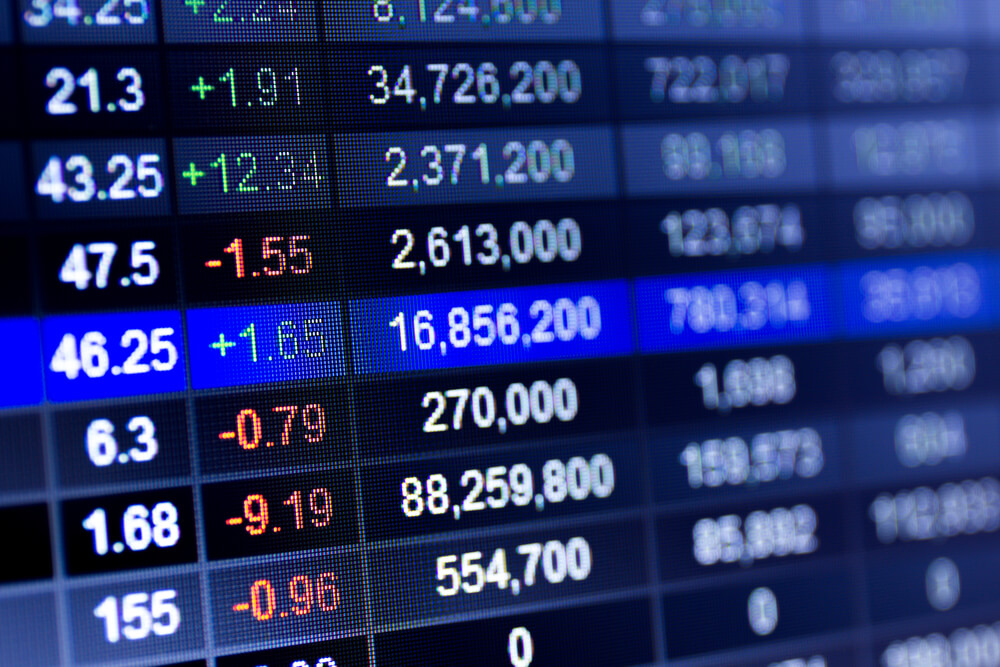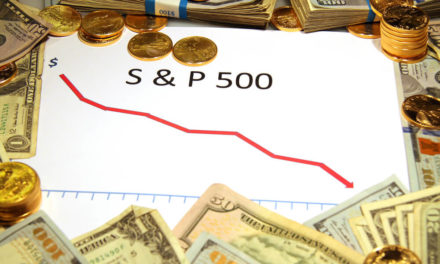U.S. stocks are slipping as banks and retailers fall and smaller companies continue to take steep losses, and more in Thursday’s Stock Market Update. High-dividend stocks including real estate companies and utilities, which investors see as safer plays, are climbing. It’s been a relatively calm day on Wall Street after several wild wings earlier in the week.
The European Central Bank said it will end its bond-buying economic stimulus program at the end of the year, but trimmed its forecasts for economic growth across Europe. Government bond yields in Europe fell.
STOCK MARKET UPDATE
KEEPING SCORE: The S&P 500 index lost 21 points, or 0.8 percent, to 2,624 at closing time. The Dow Jones Industrial Average added 199 points, or 0.8 percent, to 24,372 as McDonald’s and Procter & Gamble rose. The Nasdaq composite fell 71 points, or 1.1 percent, to 6,680.
SMALL CAPS, BIG WORRIES: The Russell 2000 index of smaller companies fell 44 points, or 1.6 percent, to 1,432. The Russell has fallen 17.8 percent since setting a record high in late August and is trading at its lowest level since September 2017.
Among other issues, that reflects investors’ fears about slowing economic growth in the U.S. and rising interest rates. Smaller companies are more vulnerable in times of slower growth, and they tend to carry higher levels of debt than larger companies do. Higher rates make those debts more costly.
Shaky reports from retailers may have added to those worries Thursday as apparel company Tailored Brands and Oxford Industries, the parent of Tommy Bahama and Lilly Pulitzer, both cut their forecasts for the year. Tailored Brands nosedived 30.2 percent to $14.05 and Oxford slipped 11.6 percent to $66.16. Smaller industrial and financial companies also dropped.
Larger retailers struggled as well. Athletic apparel company Under Armour fell 4.9 percent to $18.84. It tumbled 10.4 percent Wednesday as investors worried about its future sales growth. Hanesbrands dropped 6.8 percent to $13.77 and Ralph Lauren fell 4.9 percent to $102.82.
ECB ENDS STIMULUS: The European Central Bank said it will halt its bond-buying program, even though the region’s economy is slowing. It has been pumping money into the economy for almost four years and spent about $3 trillion in the process. The bank isn’t ending its stimulus program entirely, as it will continue to invest money from maturing bonds and will take other steps to encourage banks to lend money.
Credit conditions around the world are gradually getting tighter, as the Federal Reserve has been steadily raising interest rates for three years and is letting its balance sheet shrink.
European investors appeared to take the news in stride. Germany’s DAX and the British FTSE 100 were little changed percent while the CAC 40 in France fell 0.3 percent. Bond prices rose and yields fell in Germany, France and Italy, although yields in Britain increased.
CLEANUP IN AISLE FOUR: CVS Health fell after the New York Post reported that a U.S. District Court judge appears likely to block its purchase of health insurer Aetna at a hearing next week. CVS announced the closing of the $69 billion Aetna deal in late November after the U.S. Department of Justice cleared it. But Judge Richard Leon has reportedly said in hearings that he still has concerns about the antitrust implications of the deal.
CVS fell 2.1 percent to $72.90, and it’s down 8.3 percent since an earlier hearing on Dec. 3.
BUMPY FLIGHT: Airlines skidded after a disappointing profit forecast from Delta, which expects a smaller adjusted profit in 2019 than analysts had hoped. Delta fell 4.8 percent to $53.56 while United lost 2.9 percent to $87.03 and American dropped 4.8 percent to $32.70.
GE JUICED UP: General Electric climbed 7.2 percent to $7.20 after JPMorgan Chase analyst C. Stephen Tusa upgraded the stock to “Neutral” from “Underweight,” saying the risks and rewards to the stock are balanced. GE has lost almost 60 percent of its value this year after slashing its dividend, replacing its CEO, and taking big charges tied its power business and its insurance business. Analysts are concerned that several of its businesses are years away from being profitable.
BREXIT: British Prime Minister Theresa May won a confidence vote among lawmakers from within her Conservative Party, which means she won’t face another leadership challenge for at least another year. Earlier this week the pound fell to 20-month lows after May canceled a vote on her proposed terms governing Britain’s departure from the European Union. The fate of the deal itself remains unclear.
ENERGY: Benchmark U.S. crude oil jumped 2.8 percent to $52.58 per barrel in New York. Brent crude, the international standard, rose 1.1 percent to $60.81 per barrel in London.
Wholesale gasoline climbed 4.1 percent to $1.48 a gallon and heating oil rose 1.4 percent to $1.88 a gallon. Natural gas slipped 0.3 percent to $2.14 per 1,000 cubic feet.
BONDS: Bond prices edged lower. The yield on the 10-year Treasury note rose to 2.91 percent at 2.90 percent.
METALS: Gold dipped 0.2 percent to $1,247.40 an ounce. Silver was little changed at $14.89 an ounce and copper stayed at $2.77 a pound.
ASIAN STOCK MARKET UPDATE: The Japanese Nikkei 225 index gained 1 percent and Hong Kong’s Hang Seng jumped 1.3 percent while the Kospi in South Korea added 0.6 percent.
CURRENCIES: The dollar rose to 113.61 yen from 113.22 yen. The euro edged up to $1.1369 from $1.1367. The British pound rose to $1.2657 from $1.2634.
© The Associated Press. All rights reserved.




